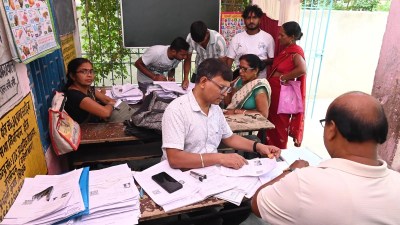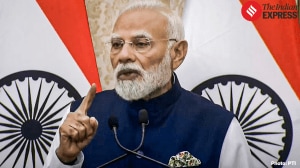Envoy Sen to stay on in US for a year as countdown begins for IAEA draft after Budget
Looking at pushing ahead with the nuclear deal after presenting the Budget, the government has instructed its negotiating team to work...

Looking at pushing ahead with the nuclear deal after presenting the Budget, the government has instructed its negotiating team to work towards wrapping up discussions with the IAEA on an India-specific safeguards agreement within the next couple of weeks and has asked Indian Ambassador to the US Ronen Sen to stay on for another year.
It may be noted that Sen, a key interlocutor in the protracted negotiations, had conveyed to Prime Minister Manmohan Singh that he would not want to continue beyond March 31 when his current term is to end. But with the government firm on pushing the deal amid a growing urgency that time is running out, Sen has agreed to stay on.
On the other hand, sources said, the DAE-led negotiating team will leave for Vienna next week with a brief to try wrapping up the negotiations. This new impetus comes after a key meeting between National Security Advisor M K Narayanan and IAEA head Mohammed ElBaradei in Munich earlier this month on the margins of the Munich Security Conference.
While the issue of inserting India’s right to take corrective action in case there is disruption in fuel supplies still needs to be resolved with the IAEA, sources said, the government is hopeful of some positive movement on this front following the Munich talks.
It’s learnt that ElBaradei reaffirmed his support to the deal during the meeting with Narayanan and assured that he would play a positive role in taking the technical talks to their logical end. Based on this, internal consultations began in New Delhi to prepare for what is expected to be the final round of discussions.
In fact, sources said, Narayanan held meetings with DAE Chief Anil Kakodkar and Foreign Secretary Shiv Shankar Menon on the pending issues which the negotiating team led by DAE’s Strategic Planning head R B Grover reported after the last round of talks. While there are some technical issues like definition of what constitutes “peaceful purposes”, the key issue is India’s demand for acknowledging the right to take corrective action in the Safeguards Agreement.
IAEA, for its part, has held that this may project the agency as a guarantor for fuel supplies which could create complications for the agreement when it is placed before the 35-member IAEA Board of Governors. Due to this stalemate, the matter had to be raised at a higher level to seek some convergence and that is where meeting in Munich seems to have helped.
If the team is able to finalise the agreement next week, then the document will have to come back to the Left-UPA committee formed for this purpose. Clearly, sources said, there are indications that the government is looking to carry matters forward in the next month or so.
A team of top US senators, including head the Senate Foreign Relations Committee Democrat Senator Joseph Biden, met the Prime Minister this week. The PM assured them that the government was still committed to the nuclear deal but had to address domestic political concerns.
The government and the Congress have been trying emphasise that the deal is not just about cooperation in the atomic energy sector with the US, but also with the rest of the world. India has finalized the text of agreements with Russia and France but even those governments lay the same precondition that New Delhi first conclude its safeguards agreement with IAEA and obtain an exemption from the 45-member Nuclear Suppliers Group. It is on these grounds that the government will try to convince the Left to allow it to firm up the agreement with IAEA and proceed to the next stage of obtaining an exemption from NSG.



- 01
- 02
- 03
- 04
- 05




























